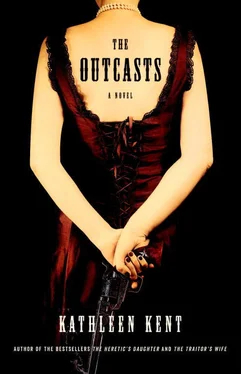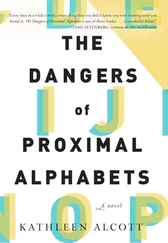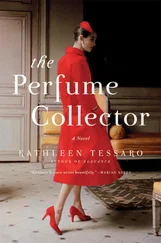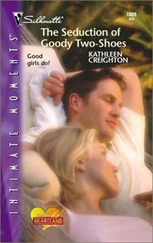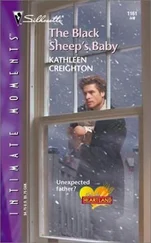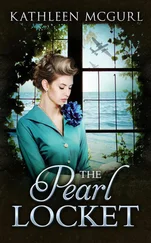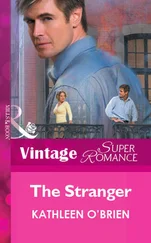She looked away but smiled and handed back the small butt end of the cigarette. “Why are you telling me all this? What do you gain from it?”
He squinted at her again. “I feel sorry for you. That surprise you? A black man feelin’ sorry for a white woman? But I do. These farmers get wind of what you are, and you’ll be out on the road before you can turn around.”
He pointed in a sweeping motion across the field. “Besides, all these people here, they can hardly stand the fact that I’m with them day after day, working my fields, raising my crops.” He crooked his thumb towards the greenhouse roof; the strengthening sun reflected off the glass negatives embedded there. “Looking at me, they understand they’re the upright dead, just like those ghosts there on the ceiling. Everything they knew or had or thought they were gonna have is gone.” He took out his tobacco pouch and some papers and began to roll another cigarette. “And you? You’re the mold in their bread. The worm in their belly that they live with but don’t know is there.”
He wet the paper with his tongue, then sealed it. “Yes.” He laughed softly. “How the mighty are fallen.” He handed Lucinda the cigarette, struck a light for her on the bottom of his match safe. “You and me, an upstairs girl and a slave that was, we are the new citizens for the coming of days.”
It took only a few days to convince Bedford, through furtive touching and desperate groping, kisses given and received on small, exposed places of naked skin, to take her to the place where he said he had discovered the gold.
On a warm evening after an unexpected rain, Bedford walked her to the clearing where the German had been killed and led her to the very banks where his body had been rolled into the water. At first she was alarmed, thinking the body had been discovered, but Bedford pointed across the water to a small island—what she had thought was simply a promontory jutting out from the opposite bank—and said, “That’s where Lafitte’s treasure is buried. There amongst the trees.”
They stood in the dark, his arm around her waist, and listened to the night sounds coming off the water and to the rustling grasses hiding the multitude of creeping, unseen things. She recalled the persimmons on the banks of Buffalo Bayou, and the alligators that guarded them. The island was so very near, and yet it would have to be approached with caution. She stepped closer to the waterline, ignoring the dense clay mud that leached into her shoes, and made a mental list of what would be needed to dig up the gold: a shallow boat for the crossing, ropes, picks, shovels, and, equally important, a sharp eye and a loaded gun for the swamp guardians. Bill would be pleased.
She shivered in expectation, and Bedford, thinking her cold or afraid, held her closer. He whispered to her, “I told you I would share everything I have with you.”
Kissing his cheek, she said, “Yes, Bedford, dear. I am certain now that you will.”
The next morning the air turned cool, and Lucinda watched the giant whooping cranes, their white and black feathers in stark contrast to the blue of the sky, gliding onto the bayou waters by the hundreds, heard their raucous calls carried with them from far northern places. Lucinda had been pushing Elam’s chair along the path towards Red Bluff Road and the schoolhouse but stopped to watch the birds, describing to him what he couldn’t see beyond his stiff, forward-facing view in his invalid’s chair.
She mused aloud, “They look too large and awkward to fly. How do you think they manage it?”
She looked down at Elam, smoothed some stray bits of hair off his forehead, and impulsively kissed him on the cheek. She had begun taking him to school with her every morning, placing him next to the stuttering boy, thinking it would do the both of them good. The boy talked to Elam throughout the day, his impediment lessening with practice. And for Elam, it was a rescue from the stultifying and suffocating air of the Waller house.
And because of her closer involvement with Elam, she now knew how the pistol had come to be in his lap. It was Euphrastus who, every morning, before Lucinda wheeled the invalid out the door, lifted the quilt and placed the gun underneath. When she asked him why he would do such a thing when Elam could neither move nor speak, Euphrastus answered that he hoped the constant reminder of his son’s unfulfilled duty as a soldier would rally him to, at the very least, claim his responsibilities as a Waller, cause him to shake off his imaginary wounds, raise himself from the invalid’s chair, and function as a man.
She took hold of the chair handles and continued rolling Elam into the schoolhouse, then settled him at his usual place. She told her students to work on whatever they pleased, only to be quiet.
She sat in her chair and stared out the window, thinking of the letter she would post that day. She hid a tight, satisfied smile with the palm of her hand; soon she could quit this place and begin a life of protected comfort in New Orleans.
A sudden rush of air caused her to turn. May stood in the doorway, holding on to the door frame with outstretched arms, her hair blown into cascading ribbons around her neck. She wore the dove-gray dress and a fine lavender shawl that Lucinda had given her. May smiled excitedly, her cheeks and forehead wind-reddened and glowing, and Lucinda’s breath caught in her throat to see in one body such a perfect balance of color, form, and motion. A true and strong affection for the girl rose up like springwater and Lucinda smiled in return.
May took two steps into the room, seemingly unaware of all the other students staring at her as well. “Miss Carter,” she began breathlessly, pointing towards the door.
Lucinda looked through the open space, saw nothing.
“Your brother, Bill, is coming.”
Lucinda blinked and stood. On Red Bluff Road, a man walked slowly towards the schoolhouse, leading his horse. He looked closely at everything around him, swiveling his head from side to side, taking in the fields and houses in the distance. When he noticed Lucinda standing outside in the yard, he waved once and continued his same leisurely approach. The sun flared off a pair of spectacles and perhaps a glint of teeth showing through a growth of beard.
May came to stand next to her in the yard, and Lucinda felt the girl slip one hand into hers.
“I met him along the road,” she said. “You told him in your letter that you’d befriended someone he’d be interested in. And now he’s come to meet that friend.”
It took a moment for Lucinda to comprehend that May was speaking of the unfinished letter recovered from the greenhouse. She looked at May’s upturned face, rapturous with a girl’s expectation of being admired and a woman’s fevered hope of being pursued, and she suddenly realized that May believed that the friend referred to in Lucinda’s letter to Bill was not Bedford but herself.
The crisis for Dr. Tom came the day after Nate’s return from Lynchburg in the form of a roaring fever and frightening visions that left him moaning and disoriented. Nate and the doctor sat with him through the night, nodding occasionally into sleep, only to be awakened again by the ranger rambling and calling out several times, “Watch it, watch it…”
The doctor warned Nate that the patient could be dead by morning, but by daybreak, the fever had broken, and Dr. Tom gave himself ten days to recover sufficiently to ride with Nate to Lynchburg.
The doctor shook his head but conceded, “I’ve known stranger things to happen. God moves in mysterious ways, His wonders to perform.”
“God, and a lot of opiates,” Dr. Tom countered.
Читать дальше
